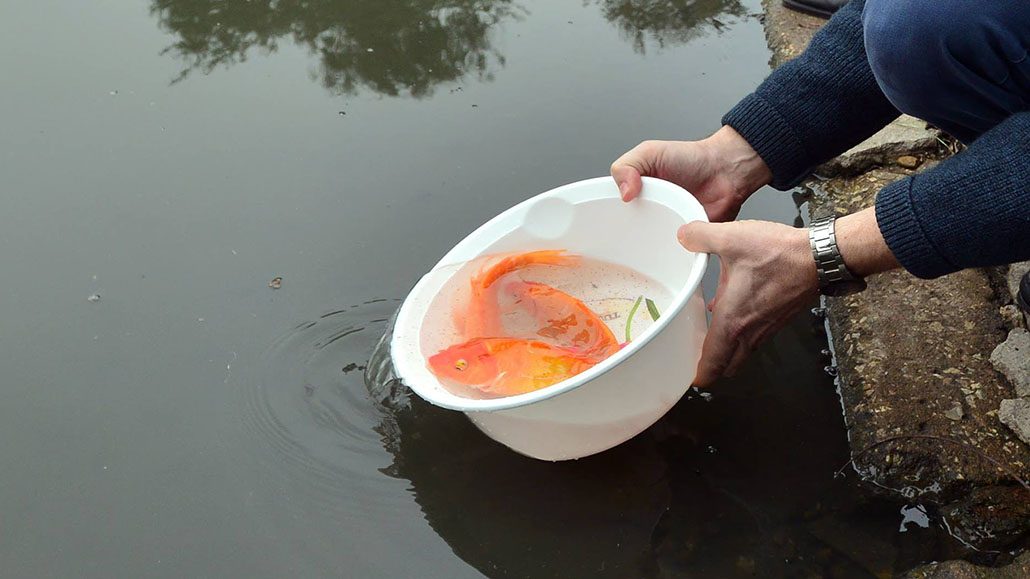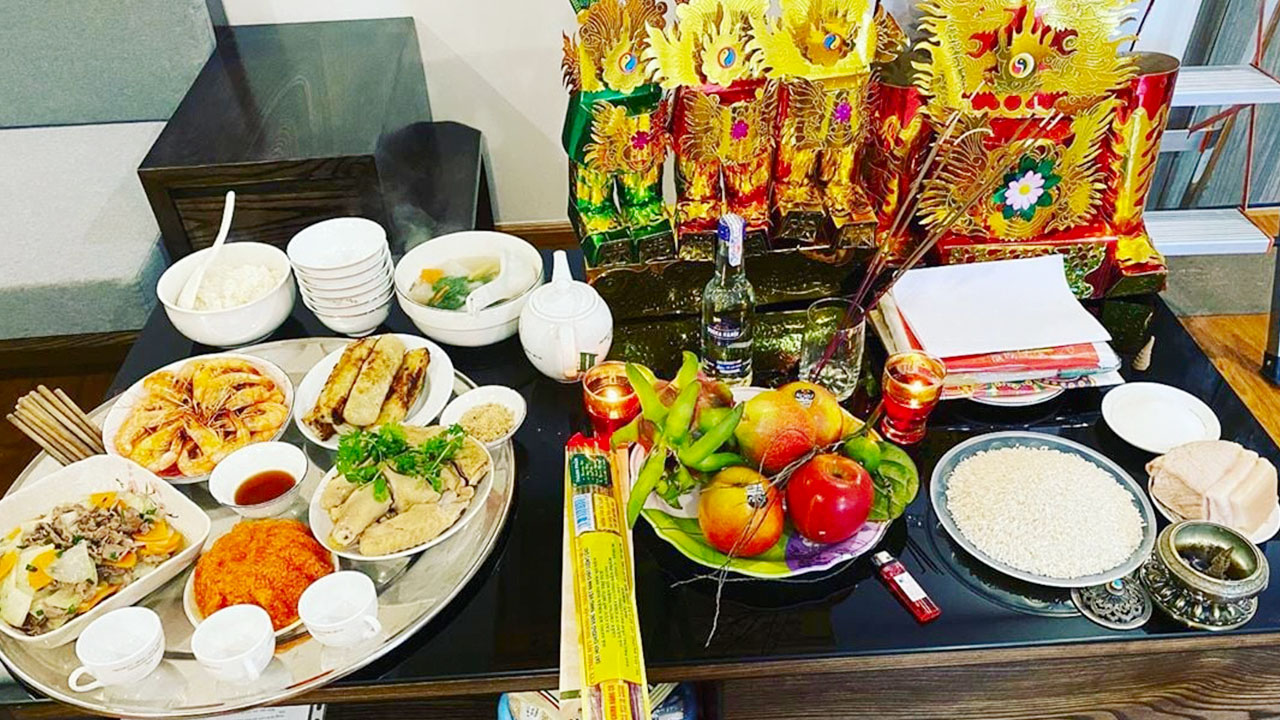The kitchen god is a revered figure in Vietnamese culture, representing the guardian of the home and the keeper of family prosperity. This deity is believed to reside in the kitchen and oversee the daily activities of the household. In Vietnam, the worship of the kitchen god is a deeply ingrained tradition that has been passed down for generations. In this article, Duongsrestaurant.com will explore the significance of the Kitchen God Vietnamese culture and how this practice continues to thrive in modern times.
The Origins of the Kitchen God in Vietnam

The origin of this holiday is taken from local folklore about Thi Nhi, Trong Cao, and Pham Lang. In the story Thi Nhi and Trong Cao are unhappily married with no children. They quarreled and fought constantly and one day Trong Cao got very angry and sent Thi Nhi away. Thi Nhi left and later married another man named Pham Lang. Decisions made in anger are generally regretted and the same was true for Trong Cao, who really did love Thi Nhi. He then set out to find her and on the way he became a beggar. As he was searching he accidently found Thi Nhi at her new home.
Explore: Vietnamese Lunar New Year
They talked about the past and their present lives for hours until it was about time for Pham Lang to come home. Since Thi Nhi thought it would be awkward for the two men to meet, she convinced Trong Cao to hide in a haystack. Pham Lang accidentally burned this haystack to make fertilizer for the fields with Trong Cao still hidden inside, thus cremating him. Thi Nhi feeling guilty decided to also jump into the fire and die. After watching his wife kill herself Pham Lang then took his own life and the 3 spirits ascended to heaven.
Upon entering Heaven Ngoc Hoang (the Jade Emperor) deemed them Deities, the Tao Quan, who would watch over the people on Earth and report back each year on the people’s actions after riding a carp back to heaven. Thi Nhi became the Deity of the Market, Trong Cao, the Deity of the Land, and Pham Lang, the Deity of the Kitchen.
Honoring the Kitchen God in Vietnam

The worship of the kitchen god takes place on the 23rd day of the twelfth lunar month, also known as Tet Tao Quan or the Kitchen God Festival. This is a significant event in Vietnamese culture, as it marks the end of the old year and the beginning of the new one. Families will clean and decorate their homes, prepare offerings, and gather together to pay homage to the kitchen god.
Rituals and Offerings
On the day of the festival, families will offer a variety of items to the kitchen god, including fruits, sweets, and sticky rice cakes. These offerings are meant to appease the deity and ensure a favorable report to the Jade Emperor. In some regions, families will also burn paper money and miniature paper houses as offerings to the kitchen god.
Another important ritual is the cleaning of the kitchen altar and the statue or portrait of the kitchen god. This is done to show respect and gratitude to the deity for his protection and blessings throughout the year. Some families may also offer prayers and incense to the kitchen god, asking for his continued guidance and prosperity in the coming year.
The Journey of the Kitchen God

After the offerings have been made, it is believed that the Tao Quan will make his annual journey to heaven on the back of a carp. To assist him on his journey, families will release live carps into nearby bodies of water, symbolizing the kitchen god’s ascent to the heavens. This tradition is also seen as a way to bring good luck and prosperity to the household.
How to Use Kitchen God Vietnam
The worship of the Tao Quan is not limited to just one day in the lunar calendar. Many Vietnamese families will have a small altar dedicated to the kitchen god in their homes, where they can offer prayers and incense on a daily basis. This practice serves as a reminder to always be grateful for the blessings and protection of the kitchen god.
In addition, the Tao Quan is also believed to bring good luck and prosperity to those who honor him. As such, many Vietnamese people will display images or statues of the kitchen god in their kitchens or dining areas to invite his presence and blessings into their homes.
Examples of Kitchen God Vietnam in Modern Times

Despite the modernization of Vietnam, the worship of the Tao Quan remains a deeply ingrained tradition in Vietnamese culture. In fact, the practice has even spread to other countries with significant Vietnamese populations, such as the United States and Australia.
In these countries, Vietnamese communities will come together to celebrate Tet Tao Quan, often with elaborate ceremonies and feasts. This is a way for them to preserve their cultural heritage and pass down the tradition to future generations.
Comparisons with Other Deities in Vietnamese Culture
The Tao Quan is just one of many deities worshipped in Vietnamese culture. However, he holds a unique position as the protector of the home and family. In comparison, other deities may be associated with specific aspects of life, such as health or wealth.
Additionally, the worship of the kitchen god is not limited to a specific religion in Vietnam. It is common for both Buddhists and Catholics to participate in this practice, showcasing the cultural diversity and inclusivity of Vietnamese society.
Advices for Honoring the Kitchen God

If you are interested in incorporating the worship of the Tao Quan into your own life, here are some tips to keep in mind:
- Research and learn about the traditions and customs associated with the Tao Quan in your region.
- Offer sincere prayers and gratitude to the Tao Quan, rather than just going through the motions.
- Keep the altar and offerings clean and well-maintained throughout the year.
- Involve your family and loved ones in the worship of the Tao Quan to strengthen familial bonds.
- Respect the beliefs and practices of others who may have different ways of honoring the Tao Quan.
Conclusion: Honoring Tradition and Cultivating Prosperity
The worship of the kitchen god is a deeply rooted tradition in Vietnamese culture, representing the importance of family and home. This practice continues to thrive in modern times, showcasing the resilience and adaptability of Vietnamese society.
Through the rituals and offerings, Vietnamese people express their gratitude and seek blessings from the kitchen god for prosperity and good luck. As we continue to honor this deity, may we also remember to cherish our loved ones and cultivate a sense of community and togetherness.





